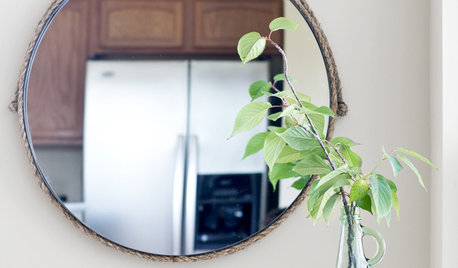Is Your Vermicompost Better Than Mine?
equinoxequinox
13 years ago
Related Stories

MOST POPULAR40 Dogs Who Are Having a Way Better Summer Than You
Houzzers share pics of their canine companions living it up — or getting down with relaxing — on warm days
Full Story
BEFORE AND AFTERSA ‘Brady Bunch’ Kitchen Overhaul for Less Than $25,000
Homeowners say goodbye to avocado-colored appliances and orange-brown cabinets and hello to a bright new way of cooking
Full Story
BUDGET DECORATING9 Tricks to Boost Your Home’s Appeal for Less Than $400
Whether you’re redecorating or just doing a quick update, check out these ways to enhance your home on a budget
Full Story
FIREPLACESRumford Fireplaces Are Hotter Than Ever
Higher efficiency and good looks are leading homeowners back to this 18th-century fireplace design
Full Story
SMALL HOMES28 Great Homes Smaller Than 1,000 Square Feet
See how the right layout, furniture and mind-set can lead to comfortable living in any size of home
Full Story
COLORWhy You Should Paint Your Walls More Than One Color
Using multiple colors can define zones, highlight features or just add that special something
Full Story
DIY PROJECTSMake a Custom Nautical Mirror for Less Than $30
Be a captain of style with a rope-bordered mirror you can fashion in an afternoon
Full Story
MOST POPULARThree Magic Words for a Clean Home and a Better Life
Not a natural tidying and organizing whiz? Take hope in one short phrase that can change your life forever
Full Story
BATHROOM DESIGNHow to Build a Better Shower Curb
Work with your contractors and installers to ensure a safe, stylish curb that keeps the water where it belongs
Full StorySponsored
More Discussions







sbryce_gw
equinoxequinoxOriginal Author
Related Professionals
Londonderry Landscape Architects & Landscape Designers · New Bedford Landscape Architects & Landscape Designers · Aloha Landscape Contractors · Estelle Landscape Contractors · Florham Park Landscape Contractors · North Potomac Landscape Contractors · The Crossings General Contractors · Bowling Green General Contractors · Cape Girardeau General Contractors · Coronado General Contractors · Franklin General Contractors · Groton General Contractors · Mount Prospect General Contractors · Poquoson General Contractors · Union Hill-Novelty Hill General Contractorssbryce_gw
rookie09
fam62cc
antoniab
11otis
11otis
protea_king
happyhoosierworms
randomz
steamyb
pjames
equinoxequinoxOriginal Author
gardenfanatic2003
jonas302
Shaul
Karchita
smalltowngal
equinoxequinoxOriginal Author
Karchita
pjames